This week’s policy update is an early (almost) mid-week treat. There will be a bumper edition next week.
The Minister defends universities
Chris Skidmore was in front of Education Committee on Wednesday at an accountability hearing. You can watch it here. In the parts we watched, he answered questions on encouraging apprenticeships, and while he agreed, he also countered by talking about placements and sandwich years as another way to support employability. He also defended “post 92s” as being world class and criticised those who leap to conclusions based on whether universities are in the Russell Group or not. And he said that teaching was important and a focus only on research (and negative press about institutions) was not helpful.
On the Augar review his advisor said it is not finalised yet and the Minister said he hasn’t seen a draft. He expects there will be changes “within the financial envelope that has been set”. He also says the terms of reference remain the same for the review. That’s important because (set before the ONS decision on the deficit) they said:
- The Review recommendations will be consistent with the Government’s fiscal policies to reduce the deficit and will not place a cap on the number of students who can benefit from post-18 education. Student contributions towards the cost of their studies, including the level, terms and duration of their contribution will be considered.
Separately he has given his second speech on research, which we cover in the next section, but he also delivered a speech on ‘going global’ in higher education, outlining his vision for the sector. In this speech he repeated a lot from other recent speeches and announcements, but also talked about TNE (trans national education) with enthusiasm and international research collaboration. He spoke of UK students becoming truly global citizens (and he didn’t say that they were citizens of nowhere). I think international student loneliness and mental health will be picked up increasingly alongside the other mental health stories. He mentioned “Step Change” and the University Mental Health Charter.
- I was particularly shocked to learn, when I gave a speech at a Wonkhe conference on the ‘secret lives of students’ earlier this year, that over 15% of students said they felt lonely on a daily basis. And the figures were worse for international students. In fact, 20% of international students said they do not consider themselves to have any true friends at university. So, they can lack support networks and be more likely to have concerns over their mental health. That is why we are working closely with UK universities to embed the ‘Step Change’ programme within the sector, which calls on higher education leaders to adopt the mental health of students and staff as a strategic priority.
- We remain open to exploring participation in the successor scheme to the current Erasmus+ Programme. But, as a responsible Government, we are also considering a wide range of options with regards to the future of international exchange and collaboration in education and training. This includes a potential domestic alternative to the Erasmus+ Programme. The potential benefits of the UK establishing its own international mobility scheme would include the ability to have a truly global exchange programme. And I will be driving forward this work in the coming months.
Research and research funding
New Research and Innovation Strategy: The Minister gave the second of his four planned speeches on research as the “Minister for the 2.4% [GDP investment in research and innocation]”. We reported last week’s in our update. This week’s was a little bit repetitive, if we’re honest [you can read the annotated version by HE for Research Professional here], but he did launch the International Research and Innovation Strategy which was trailed last week. As with all such documents it is long on images and rhetoric (and case studies) and short on specifics.
Some fun facts:
- UK Global Research and Innovation – 6 per cent of global research publications are produced by the UK.
- 15 per cent of the world’s most highly cited articles come from the UK.
- £23.7bn invested in R&I by UK businesses in 2017.
- Top four in the Global Innovation Index.
- Three universities ranked in the top ten globally.
- Top ten in World Bank ease of doing business rankings.
There are seven themes each with a set of commitments:
A global partner: a partner for open, excellent and entrepreneurial research and innovation.
Our commitments:
One of our core objectives is to continue to collaborate with European partners on major science, research, and technology initiatives. We want to explore association to EU research and innovation programmes, including Horizon Europe and Euratom Research and Training, networks and infrastructure.
The new strategic partnership approach with Africa announced by the Prime Minister in 2018 is underpinned by a coherent cross government science, technology and innovation approach. …
We are creating a long-term research and innovation infrastructure roadmap, incorporating leading UK and international facilities as a cornerstone, to develop an effective strategy for future requirements and investment priorities.
We will use our extensive diplomatic networks, led by our Science and Innovation Network teams …. to enhance international cooperation, build partnerships and deliver this strategy.
We will work with our universities, research institutes, the academic and business communities to promote and facilitate international collaboration and use their networks and influence to build new partnerships that produce excellent research and innovation.
Bringing together the best talent from around the world
Our commitments
We are committed to funding research talent, including:
- £1.3bn to attract and retain world class talent, through UKRI’s Future Leadership Fellowship and from the UK’s National Academies …
- A new AI skills and talent package supported by industry funding and up to £110m government investment including: up to 200 new AI Masters places at UK universities; new PhDs for 1,000 students at 16 dedicated UKRI AI Centres for Doctoral Training; up to five AI research Fellowships created in collaboration with The Alan Turing Institute.
We are ensuring our visa arrangements support international researchers, innovators, their teams and their families.
A suite of UK based Fellowships for promising global researchers….
Commitments to build research capacity in partner countries and create a global network of promising early career researchers with links to the UK, including FLAIR Fellowships for African researchers.
Our Knowledge Exchange Framework will support closer working between industry and academia promoting a culture of continuous improvement in knowledge exchange.
Regional DFID technology acceleration platforms working with Innovate UK Knowledge Transfer Network …
The £900m UK Research Partnership Investment Fund.
A global hub for innovation
Our commitments
In the UK’s Industrial Strategy we have set out the goal of making the UK the most innovative country in the world by 2030.
We have established hubs of tech innovation throughout the UK that are world-leading. …
We are working towards a global digital marketplace supporting greater transparency in public procurement…
We have an extensive Catapult network …
We are extending Innovate UK’s Global Expert Missions and Business Innovation programmes …
Through the UK Chairmanship of and participation in EUREKA we are working with members to develop a global framework for business-led R&D and innovation collaboration, and have committed a further £20m to support international collaboration through EUREKA
Incentives and financial support
Our commitments
A £20bn, 10-year Patient Capital Action Plan, including £2.5bn for British Patient Capital to drive £7.5 bn of investment into innovative high-growth potential SMEs.
The upper limits on the Enterprise Investment Schemes and Venture Capital Trust investment reliefs were doubled from April 2018 for knowledge-intensive companies.
British Business Bank’s Enterprise Capital Funds programme …
We will work with businesses, our leading universities, research institutes and UK Research & Innovation to make the UK an even more attractive location for R&D activity. …
Global Entrepreneur Programme helps overseas entrepreneurs and early stage technology businesses that want to relocate to the UK.
R&D Tax Credit relief for SMEs and R&D Expenditure Credit …
A global platform for the technologies of tomorrow
Our commitments
We are bringing forward plans to transform the UK’s regulatory system to enable innovation…. including through a Regulators’ Pioneer Fund to support regulator-led initiatives.
We will work with other countries to develop a balanced and fit for purpose international intellectual property framework that maximises the benefits of innovation and creativity. We are establishing a new partnership with the World Economic Forum Centre for the Fourth Industrial Revolution to develop regulation ….
We will promote better governance frameworks around the globe through the FCO‘s network of overseas posts, and BSI’s leadership role in European and international standards.
We will provide a safe and secure environment for research and innovation through physical and cyber protection.
A partner for a sustainable future
Our commitments
The Industrial Strategy Challenge Fund …
The UK’s commitment in law of 0.7 per cent of our Gross National Income to Official Development Assistance ….
We have invested across government in targeted programmes for international research and innovation for sustainability and the Sustainable Development Goals.
We are committed to bring a whole of government approach to maximise the impact of international collaborative programmes…..
An advocate for better research governance, ethics and impact
Our commitments
The UK will play a full and active role in the global governance of scientific research and innovation organisations through critical global fora [there’s a huge list]
New Inquiry into Research Funding: The Science and Technology Committee have launched a new inquiry to assess the impact of potential changes in funding on the ability of UK universities to conduct high-quality research.
The committee will begin taking oral evidence on 21st May 2019 and will likely cover;
- What proportion of England and Wales’ overall science research is done in universities? How much of that is funded directly by universities?
- Has the establishment of UKRI affected the way in which universities apply for funding for research? Have the changes been beneficial?
- The Government have committed to a target of 2.4% of GDP to be invested in research and development by 2027. What will be the balance between investment in research-active universities and industry? What are the expected changes to research funding in universities?
- Would the reduction or abolition of tuition fees impact funding in such a way as to affect the ability of universities to conduct high-quality scientific research?
- If Brexit led to a reduction in EU students studying in England and Wales, would that affect science research capabilities in universities?
CBI report on R&D: The Confederation of British Industry has published a report on the ‘Changing Nature of R&D’, which highlights that despite the Government’s aim of raising R&D investment to 2.4% of GDP by 2027, it is not expected to reach this level until at least 2053. As part of this, the CBI has called on the Government to commit to making a number of commitments to enhancing the UK’s research and innovation ecosystem:
- The Government should agree to setting out a comprehensive and future focused road underpinned by commitment to increasing public funding,
- The Government should include measures to increase the number of businesses utilising the potential of data and analytics to at least 3%
- This can be achieved by delivering a ‘competency building’ package to support businesses to understand and unlock value from their data.
- The CBI calls on the Government to simplify the process behind businesses ability to navigate innovation and support productive partnerships.
- This can be achieved by establishing a new ‘business advisory group’ for UKRI.
- Implementing a business development and outreach for Innovate UK
- Increase visibility and simplicity of government and university innovation support.
- The CBI added that the UK should consolidate its position as a global leader in data-driven R&D by setting out ‘ambitious and creative policy’
- As part of this, the Government should deliver the world’s most ‘competitive R&D tax credit by ensuring that it recognises the growing importance of data-driven R&D’
- The Government should also help businesses embrace experimental policy approaches.
Knowledge Exchange
Last week we mentioned that UUK and GuildHE consultation on the draft Knowledge Exchange Concordat, linked to the KEF. RDS will be leading on preparation of a BU response.
A joint UUK/Research England working group has developed a Knowledge Exchange Concordat for universities and colleges in England. UUK are doing the consultation with GuildHE for Research England. The PDF consultation document is here
The Concordat aims to:
- help higher education institutions and their staff and students enhance clarity of mission
- give partners an accurate representation of the approaches and strengths of individual higher education institutions
- provide clear indicators of their approaches to developing and improving performance
- give governing bodies and government broad confidence in the activity that is taking place in higher education institutions
Principles – The eight guiding principles are:
- Mission: Knowledge exchange is a recognised part of the overall university strategy. We have a clear understanding of the institutional role and the purpose of KE and whom the intended beneficiaries are.
- Policies: We have clear policies on all the types of KE that we undertake and we ensure they are understood by staff, students, collaborators and beneficiaries.
- Engagement: We have clear access points, engagement mechanisms and policies developed to suit the needs of a wide range of beneficiaries working with institutions as publicly funded bodies.
- Working effectively: We make sure that our partners and beneficiaries understand the ethical and charitable regulatory environments in which our institution operates and we take steps to maximise the benefit to them within that context.
- Capacity building: We ensure that our staff and students are developed and trained appropriately to understand and undertake their roles and responsibilities in the delivery of successful KE.
- Recognition and rewards: We recognise the achievements of our staff and students who perform high-quality KE activities.
- Continuous improvement: We proactively strive to share best practice with our peers and have established processes for learning from this.
- Evaluating success: We undertake regular institutional and collective monitoring and review of our strengthening KE performance using this concordat and through regional, national or international benchmarks to inform the development and execution of a programme of continuous improvement.
For each principle, a set of possible enablers is proposed. These are examples of good practice and give an indication of the sort of activities that could contribute towards the achievement of the aims of the concordat. They should not be considered as a prescribed set of activities and they do not represent a checklist against which universities can be judged.
Universities that sign up commit to:
- Making it clear to staff, students and partners what they will do, what they expect within universities and how they expect to work with partners
- The regular evaluation of approaches and processes to ensure continuous improvement in what is done
- Adopting the principles outlined in the KE concordat as a framework for effective knowledge exchange
- Publicly committing to the KE concordat
- Conducting an evaluation of their KE strategy and practice, using the KE concordat
- Producing and publishing a short action plan that identifies priorities, good and innovative practice and areas where improvement is needed
- Considering and responding to feedback and advice from the Independent Panel.
Graduate Outcomes
The Resolution Foundation published Growing Pains – the impact of leaving education during a recession on earnings and employment. It explores the severe effect experienced by those leaving education during the 2008-09 recession and highlights that the negative effects were enduring – around 6% less hourly pay for graduates (20% less for sub-HE qualification) with these effects continuing for 6 years and the likelihood of graduates to be in a low paying occupation rose by 30% (and continued for 7 years). The report says:
- …we find that people ‘trading down’ in terms of the occupations they enter after leaving education, coupled with pay restraint in mid-paid roles, are main drivers of poor pay outcomes for those entering the labour market in a recession.
- Students graduating during the 2008 financial crisis aftermath experienced higher unemployment and poorer job prospects than their slightly younger peers. The report also highlighted that those who opted to taker a lower paid job (rather than unemployment) during their early career were blighted by poor future earnings trajectories and their job prospects to break into higher skilled more lucrative employment were damaged.
Inequality – a report and a new review
The Institute for Fiscal Studies and Nuffield Foundation have launched a report into Inequalities in the twenty-first century: introducing the IFS Deaton Review.
You can read the report here. It is only 34 pages long and an interesting read. Some points here:
- Income inequality in the UK is high by international standards. Of other major economies, only the US has higher income inequality. However, Inequality in total net household income has changed little since rising sharply in the 1980s. The UK system of state transfers – especially tax credits – has been very successful at mitigating rising inequality.
- Deaths from suicide, drug overdoses and alcohol-related liver disease have been rising among middle-aged people in England – similar to (though on a smaller scale than) what has happened in the US since the turn of the century, where the trend has been shown to be concentrated heavily among the lower-educated population. In the UK, this new trend has contributed to a small rise in middle-age mortality overall in the last few years, bringing to an end decades of continual improvement.
- Women’s employment has risen dramatically from 57% in 1975 to 78% in 2017. But whilst white British women have nearly closed the employment gap with men, Pakistani and Bangladeshi women are half as likely to work as men of the same ethnic group.
- The gender hourly wage gap is strongly associated with childbirth and rises from less than 10% at the point of childbirth to 30% 12 years after the first child is born. This reflects an extraordinary lack of earnings progression for mothers, particularly those who work part-time.
- There are stark geographical inequalities in the UK. Average weekly earnings in London are 66% higher than those in the North East. Men in the most affluent areas can expect to live nearly 10 years longer than those in the most deprived areas, and this gap is widening.
- Inequalities in different dimensions – income, work, mental and physical health, families and relationships – are likely to reinforce one another. Inequality cannot be reduced to one dimension and is instead the culmination of various forms of privilege and disadvantage stemming across wealth, politics, social networks and cultural capital.
- The last few decades have seen profound changes in the labour market. Earnings growth at the top has vastly outpaced growth in the middle, whilst real earnings have actually fallen for lowpaid men (Blundell et al., 2018).
- Globalisation may have further exacerbated inequalities in earnings: competition for internationally mobile executives drove up top incomes, whilst import competition and offshoring put pressure on working-class jobs.
- Union membership has declined dramatically over the last few decades. At the peak of union density in the 1980s, every other British worker belonged to a union; today, only one in four British workers do. In the private sector, that figure is less than one in seven. Falling union membership may have removed constraints on wage dispersion, increased the share of surplus going to executives, or more generally reduced the political clout of ordinary workers against other dominant groups
- The share of all turnover captured by the largest 100 firms in the UK has risen by more than a third since the late 1990s. The average chief executive of a FTSE 100 company is now earning 145 times the average salary, up from 47 times in 1998.
- Many of the sources of the divide are indeed global, but levels of inequalities vary greatly between countries. Government policies can play an important role in responding to structural forces and mediating their damaging effects on inequality. In some cases, government policies may themselves be the culprits for rising inequalities. Differences in tax and benefit systems will lead to different patterns of inequality. Education policy also plays a role. The vast inequalities by education in the US – in health, deaths of despair, marriage and life satisfaction – may partly reflect a large gap in earnings between high- and low-educated people, which has been rising since the 1980s.
- High-quality vocational education can improve prospects for those who choose not to go down an academic path, and retraining can help workers displaced by globalisation and technological change.
- Stronger trade unions can tip power back towards employees – in the Nordic countries, between 52% and 86% of all employees belong to a trade union
- The report sets the stage for a 5 year review be chaired by Nobel Prize-winning economist Prof Sir Angus Deaton and is expected to be the UK’s biggest analysis of inequality.
A brief Brexit mention
Over last weekend Kier Starmer, Shadow Brexit SoS said no deal would be passed by Labour MPs without a confirmatory Brexit referendum. Deputy Labour leader Tom Watson spoke on Radio 4’s Today programme on Monday to reiterate this message (although in a toned down version). Starmer said on Sunday that cross-party talks would end this week unless an offer or breakthrough occurred.
On Saturday Tony Blair took to the Guardian stating Labour should never have put itself in such a position of destructive indecision. His article aimed to encourage everyone to vote (against Brexit extremism), arguing that the final decisions in Westminster on the Brexit deal will be influenced by the European election results.
Damien Hinds appeared on Sunday’s Andrew Marr show and said that the European elections could be an ultimate protest vote opportunity.
Theresa May is expected to set out the timescale for her departure when she meets the 1922 Committee (Conservative backbenchers) on Thursday.
And as we go to press [early this week] the government is saying that they will put the EU withdrawal legislation before Parliament in early June, by-passing the meaningful vote. They have said that before. A helpful summary from Dods:
Labour has confirmed it would not back this deal without a cross-party deal agreed, and ERG Whip Steve Baker said bringing the Bill back would “eradicate the Government’s majority” by alienating the DUP and Brexiteers: “Unless she can demonstrate something new that addresses the problem of the backstop, then it is highly likely her deal will go down to defeat once again.”
- The UK needs to pass the Withdrawal Agreement Bill in order to move onto the next steps of the Brexit phase and to take the UK out of the EU in UK law. The legislation would make the citizens’ rights part of the agreement directly enforceable in UK courts, and set their relationship with the EU’s Court of Justice, as well “divorce payments”, and give effect to the so-called backstop plan for the Irish border.
- The Bill will be amendable and without substantial changes or cross party breakthrough then it is very unlikely that the Bill will pass. The rationale behind the move by May might be that the deadline for a new vote could inject a sense of urgency into cross-party talks, or it could be an attempt to fend off calls for her to immediately stand down as PM. She is due to appear before the 1922 executive committee tomorrow and was expected to set out a timeframe for her resignation.
- If the Government loses the vote in June then it will make May’s premiership as Prime Minister increasingly untenable. Downing Street have confirmed that if the vote is lost again then the UK is either set for a no deal on the 31 October or a revocation of Article 50.
Access and Foundation courses
The OfS have published a report on these courses.
- For the past few years the number of students studying Access to Higher Education Diplomas… has been declining, while the number on integrated foundation years has been increasing. This means that in 2017-18, the number of entrants to Access courses was approximately equal to the number of entrants to integrated foundation year courses. The number of entrants to Access courses declined by 18 per cent between 2012-13 and 2017-18, from 36,880 to 30,410, while the number of integrated foundation year entrants almost tripled from 10,430 to 30,030.
- This report shows that there are similarities between Access to Higher Education Diplomas and integrated foundation year courses, but also important differences. In particular, the wider geographical spread of Access courses means they may be suitable for a wider range of potential higher education students and enable progress on to many different courses, whereas foundation years may be more likely to attract students with a higher level of commitment to taking degree-level study at a specific provider.
The key findings of this report are as follows:
- Two-fifths of Access students held a qualification equivalent to A-levels before taking the course, compared with four-fifths of foundation year students.
- Most Access course entrants were over 21, whereas the majority of those starting foundation years were 20 or younger.
- Access courses were almost entirely taught at further education colleges, while integrated foundation years were predominantly taught at higher education institutions.
- This means that students usually had to travel further to take a foundation year than an Access course.
- Subjects allied to medicine were the most common subject area for entrants to Access courses, whereas business and administrative studies were the most common for integrated foundation years.
- The proportion of students who progressed to a degree programme in the four years following an Access course (62 per cent) was lower than the proportion who progressed after a foundation year (79 per cent).
- Students from both courses sometimes went on to a degree course after two or more years, rather than immediately.
- The proportion of entrants who progressed to degree-level study has remained broadly stable over time for both types of course.
- Students who started without A-level or equivalent qualifications had a lower rate of progression to degree-level study (55 per cent for Access courses, 61 per cent for foundation years), than those with A-levels (71 and 89 per cent respectively).
- Those who progressed to full-time degree-level study after a foundation year were more likely to complete their degree within four years (63 per cent) than those on a degree after an Access course (53 per cent).
- Of those who qualified with a degree, a slightly higher proportion of Access course students achieved first or upper second class degrees(70 per cent) than those who studied a foundation year (67 per cent).
FE funding
The Education Policy Institute published a report on 16-19 education funding trends and implications. Some highlights are below. It is relevant to the Post-18 review because of the funding pressures and also to the debate on university admissions and access and participation.
Funding trends in sixth forms and colleges
Between 2010/11 and 2018/19, real terms funding per student in school sixth forms, sixth form colleges, and further education (FE) colleges declined substantially, by 16 per cent, from £5,900 to £4,960. This is twice the rate that the overall schools budget fell by between 2009/10 and 2017/18 (8 per cent).
Funding in school sixth forms declined by 26 per cent per full time student from 2010/11 to 2018/19. In the further education sector (sixth form colleges and FE colleges), funding declined by 18 per cent per full time student. Within this, funding for sixth form colleges fell faster than in FE colleges.
Despite funding being shifted towards disadvantaged students over this period, students in all institutions have experienced real terms funding cuts.
16-19 education has been the biggest real terms loser of any phase of education since 2010/11, but it has also suffered from a long run squeeze in funding: 30 years ago, 16-19 funding was far higher (almost 1.5 times) than secondary school funding, but is now lower.
Provision in sixth forms and colleges
Students in 16-19 education are receiving fewer hours of learning: learning hours with a teacher for students in all institutions fell by 9 per cent between 2012/13 and 2016/17. The deterioration of 16-19 institutions’ finances may exacerbate these trends further.
This fall in taught hours is particularly prominent in academic subjects: level 3 subjects (A level or equivalent) have seen a sharp decline in hours by 21 per cent between 2012/13 and 2016/17.
For academic subjects, there has been a large decline in AS provision, which has not been offset by rises in the number of hours elsewhere. This may raise concerns about the curriculum becoming even narrower: upper secondary education in England is already narrow compared to leading education nations in the OECD.
Policy recommendations
The government should urgently review the adequacy of 16-19 funding, to understand whether current funding rates are jeopardising the sector’s financial sustainability.
The government should assess the impact of 16-19 funding changes on curriculum breadth, ensuring that young people have a good choice of high quality post-16 academic and vocational qualifications.
The government should review the impact of funding changes on disadvantaged students and consider whether funding is supporting the government’s aim of narrowing the attainment gap.
Rethinking student loan communications
Martin Lewis, MoneySavingExpert.com, has been a vocal contributor to the student loans debate calling for both reform, greater understanding (e.g. of parental contribution) and for the way student loans are talked about to be changed to aid understanding. Martin Lewis is concerned that the word ‘debt’ is described puts off those from lower income backgrounds from considering university – stalling their chances at climbing the social mobility latter. He has collaborated with the Russell Group to pilot a new student loan statement named the Graduate Contribution Statement. He says the current student loan statement is not fit for purpose and the new statement aims to inform people of their personal situation whilst using this information to illustrate how student loan repayments really work over the short and long-term – cutting through the confusion. The report describes the features of the new statement:
- Focuses on repayments to be made, more than the debt. For the majority of university leavers, their outstanding ‘debt’ is a mostly meaningless figure that bears only a loose resemblance to what they need to repay. However, this figure, and the interest added, is the primary data given on the current statement – leaving many unnecessarily scared.
- Details how the repayments actually work. (The 9% above the threshold, currently £25,725 (in England & Wales) for 30 years, unless they clear the debt before that.) One of Martin Lewis campaigning points is to ensure this is well understood. He says:… whether you owe £10,000, £50,000 or £3 million – with a £30,000 salary, you repay £385 a year. The only impact the size of the ‘debt’ has is whether you’ll clear what you owe before it wipes.
- Explains what contributions are made each month, and over the year. It shows how much graduates are actually repaying now on a monthly basis, instead of a long list of figures.
- Predicts the total cost of higher education. As it’s predicted that 83% of university leavers will keep paying for the full 30 years, the total cost is often not related to the debt. The statement estimates the total amount they will repay within the 30 years, both in cash terms and real terms while factoring in inflation – based on their earnings trajectory.
The Graduate Contribution Statement was tested in an online survey of 5,796 students, former students and parents, some institutions (such as students unions) as well as in a series of student focus groups.
- 96% of respondents said the new information is clear
- 90% said the statement helped them understand the student finance system
- 91% success rate achieved when respondents were tested to ensure they really did understand the more complex information correctly
Here is an example of the new statement.
The report from the pilot statement will be presented to the Government, and to Philip Augar (Post-18 HE Education and funding review).
Martin Lewis said:
- “The current student loan statement is a blunt, misleading tool that is financially dangerous. It prompts often-unnecessary fear and distress from some of the millions who receive it. And worse, as it’s a gateway document, this reverberates across society, and therefore risks wrongly deterring many from a future of higher education.
- For the majority of university leavers, their outstanding ‘debt’ is a mostly meaningless figure that bears only a loose resemblance to what they need to repay. However, this figure, and the interest added, is the prime data covered on the current statement.
- In fact, a more accurate name for the student loan system would be a ‘graduate contribution’, as what counts most isn’t what’s owed but what’s repaid, which depends almost entirely on earnings. Yet the last year’s annual repayment is only mentioned in passing, and there’s no attempt to explain total repayments over the life of the loan.
- Focusing on the wrong info can have damaging consequences for individuals. One woman told me how the fear of the growing interest on her statement meant she used an inheritance to overpay thousands. But as she was in a low-earning profession, with little likelihood of ever clearing much, her overpayment wouldn’t have any impact on what she’d repay in future – so she’d simply flushed the cash away.
- Therefore, with the Augar report on further and higher education due, we are urgently calling on it and the Government to look at using our statement as a basis to redesign the official statement. This would improve understanding and decision-making for past, present and future students alike.”
David Thompson, Senior Policy Analyst at the Russell Group, added:
“The feedback it [the new statement] received through both our online survey and the focus groups we conducted was overwhelmingly positive. Respondents praised the new, expected lifetime repayments feature and the improved information about the 30-year forgiveness period as particularly helpful. I hope that the Department for Education and the Student Loans Company can act swiftly to adopt the best features of our proposed new statement. Doing so would not only be in the clear interest of graduates currently receiving statements, but may also help reassure both current and prospective students about the way student finance really works.”
Wonkhe Daily
If you’d like to receive the Wonkhe daily policy summary email you can sign yourself up here – it’s free for BU staff and students!
Other news
Funding: Late last week the OfS announced the £1.24 billion recurrent grant funding for HE providers which supports high quality teaching and learning. The budget has increased by 1.5% (+£19 million) from the 2018-19 level. Notable is the increase (4.7%) to £713 million for the high cost medicine, science, technology and engineering programmes. £337 million for boosting equality of opportunity and promoting greater choice in HE, of this £60 million is dedicated to the National Collaborative Outreach Programme (NCOP). It is stated that the OfS will be reviewing the funding method in the future to ensure the post-19 education and funding review outcomes are addressed.
Wonkhe report on the for-profit providers that will receive the direct grant in 2019-20. that £10 million has been allocated to 25 providers that are being funded directly by the OfS for the first time in 2019-20. These include the British and Irish Modern Music Institute (BIMM), a music college owned by Sovereign Capital; Arden University and the University of Law, both owned by for-profit group Global University Systems; SAE Education; and Pearson College – all of which were previously able to access student loans but were not previously in receipt of direct grants.
FE/HE Collaboration?: New Chief Exec of the University Alliance, Vanessa Wilson, previously Commercial Director at UK Sport, blogs for Wonkhe drawing parallels between elite sports and the HE sector:
- I see a close alignment with universities’ and colleges’ shared mission to fight for equality of opportunity and social justice, along with a collective goal to give universal access to great teaching, training and opportunities, regardless of gender, background, age, ethnicity, ability or disability.
- We need a coherent, cohesive and integrated system, with long-term investment across early years, schools, colleges, adult education and our universities. And on tertiary education, we need cross-party consensus, a joined-up strategy and commitment on the way forward, not continually chopping and changing policy direction – another reason why the long delay in Augar being published is so frustrating.
- On the divide between FE and HE she says: I am genuinely surprised by the extent the two sectors allow ourselves to be played off against one another, getting into a bidding war rather than arguing for sustained funding across the board. People, whether doing a college course or university degree, have the same aspirations, ambitions and ability to succeed.
Immigration: Ex-HE Minister, Sam Gyimah, spoke in defence of Universities in the Financial Times: I know from my time as a minister that no one in government ever took a decision deliberately to undermine the competitive position of our universities. Speaking of how the immigration policy is detrimental to universities Sam continued: you get a barely noticeable process of de-prioritisation, in which strategic decisions follow the path of least resistance. And in the current anti-elitist climate it is unfashionable to defend universities… Even in a successful sector you need to keep swimming to stay afloat — we assume our universities will continue to do well because they have always done so. This is alarming.
Gyimah highlights how the Netherlands will have the most English speaking universities in the European block and that others, worldwide, will seek to exploit the gaps we open as Brexit concludes. He says ‘we’ (presumably the Government and universities) have to be become more adept at global outreach and play the long game. Sam urges Government to bring together migration policy with export opportunities, the potential for young Britons to live and study abroad and moves to make it easier for our universities to expand overseas. Our reputation as an educational superpower is based on attracting the talented and the entrepreneurial...if we are to succeed as a country that lives by its wits and stands at the forefront of science, technology and learning, then a world class university sector must lie at the heart of a positive vision of Britain’s future.
OfS Pilot Postgraduate survey: A Wonkhe blog highlights a pilot OfS survey on the postgraduate experience outside of the standard NSS realm. It includes new questions on pre-course information and expectations, how cutting edge the programme offer is, whether there is engagement with experts in the field but from outside the HE sector (fitting with a key message in last week’s Universities Minister’s speech – which wanted to see more PhD graduates pursing a research career in industry), plus mental health questions. In the blog Jim Dickinson speculates what it could mean for the future of the NSS and concludes: The morphing of NSS into a tool that can test things that OfS thinks are important like VFM or student wellbeing is well under way. And whilst to date it’s mainly been used by OfS within the TEF, it’s starting to become clear that NSS will soon be a much more wide ranging tool for testing OfS’ success at meeting its objectives.
Subscribe!
To subscribe to the weekly policy update simply email policy@bournemouth.ac.uk
JANE FORSTER | SARAH CARTER
Policy Advisor Policy & Public Affairs Officer
Follow: @PolicyBU on Twitter | policy@bournemouth.ac.uk
 earch symposium to Masters of Sociology students, so they could better understand the role of the media in suicide representations and framing for society at large.
earch symposium to Masters of Sociology students, so they could better understand the role of the media in suicide representations and framing for society at large.



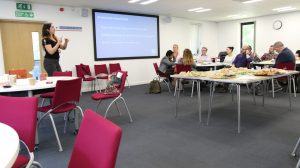
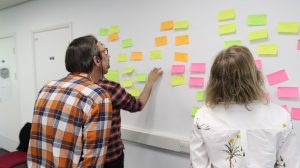
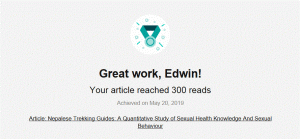

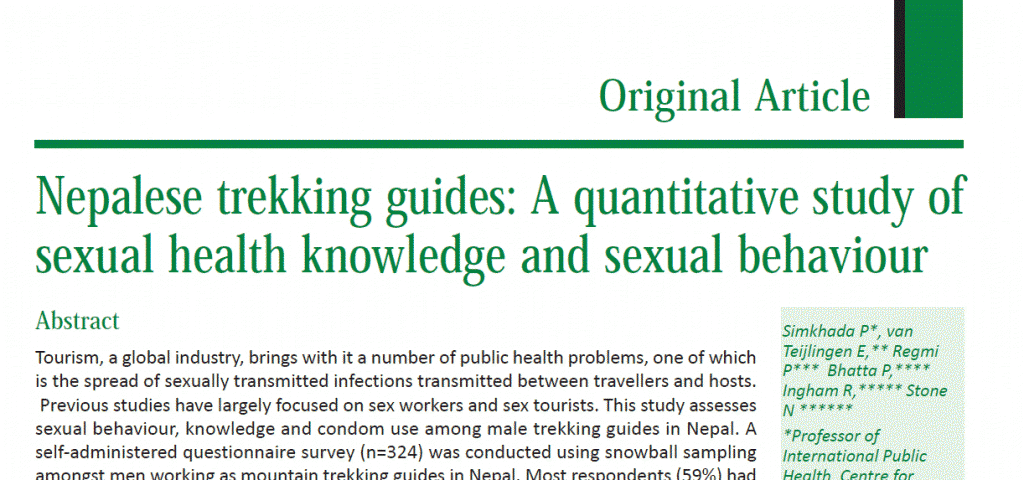
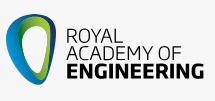

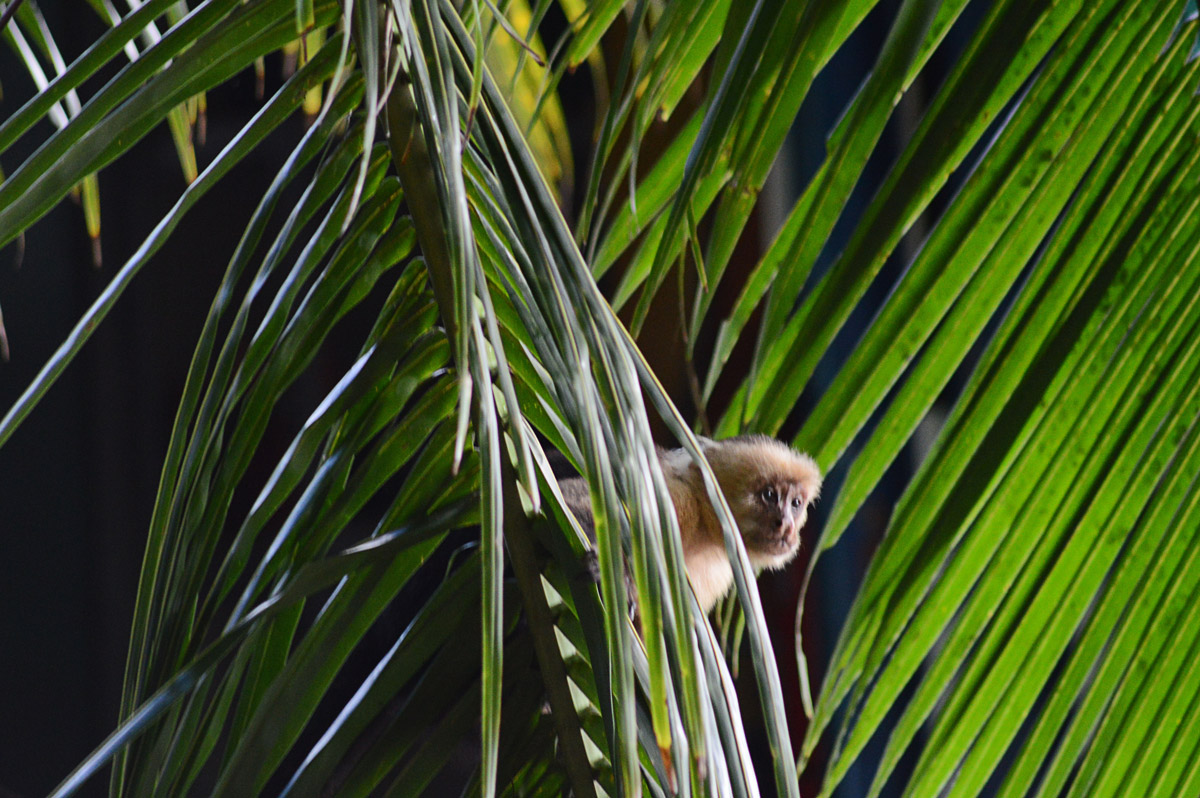



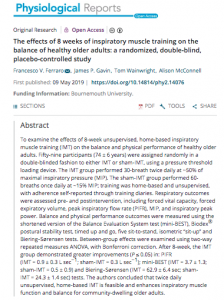 The article titled “The effects of 8 weeks of inspiratory muscle training on the balance of healthy older adults: a randomized, double-blind, placebo-controlled study” has been published by Physiological Reports.
The article titled “The effects of 8 weeks of inspiratory muscle training on the balance of healthy older adults: a randomized, double-blind, placebo-controlled study” has been published by Physiological Reports.
 Alzheimer’s Research UK have opened applications to the Inspire Fund, their new public engagement grant scheme, to support more people to engage the public with dementia and research into the condition.
Alzheimer’s Research UK have opened applications to the Inspire Fund, their new public engagement grant scheme, to support more people to engage the public with dementia and research into the condition.











 New Nepal scoping review on maternal & neonatal health
New Nepal scoping review on maternal & neonatal health Fourth INRC Symposium: From Clinical Applications to Neuro-Inspired Computation
Fourth INRC Symposium: From Clinical Applications to Neuro-Inspired Computation Writing policy briefs
Writing policy briefs Upholding Excellence: The Concordat to Support Research Integrity
Upholding Excellence: The Concordat to Support Research Integrity ECR Funding Open Call: Research Culture & Community Grant – Application Deadline Friday 12 December
ECR Funding Open Call: Research Culture & Community Grant – Application Deadline Friday 12 December MSCA Postdoctoral Fellowships 2025 Call
MSCA Postdoctoral Fellowships 2025 Call ERC Advanced Grant 2025 Webinar
ERC Advanced Grant 2025 Webinar Horizon Europe Work Programme 2025 Published
Horizon Europe Work Programme 2025 Published Horizon Europe 2025 Work Programme pre-Published
Horizon Europe 2025 Work Programme pre-Published Update on UKRO services
Update on UKRO services European research project exploring use of ‘virtual twins’ to better manage metabolic associated fatty liver disease
European research project exploring use of ‘virtual twins’ to better manage metabolic associated fatty liver disease